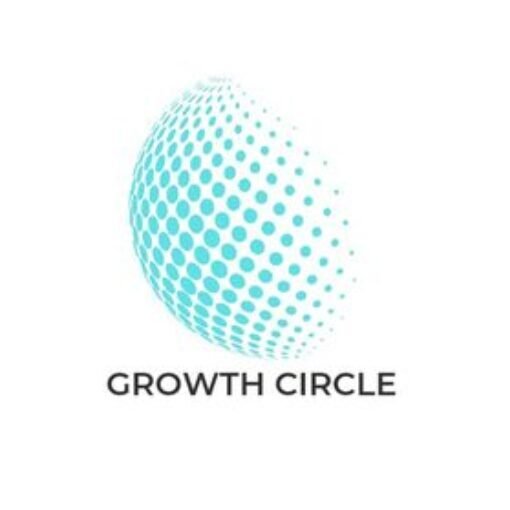Find out what Web3 is, its key features, technologies, and benefits, and how it may well shape the future of the internet for students and graduates.
Since its early days, the internet has grown extremely fast from the static websites across Web1 through to today’s version of the internet, which is both interactive and social: Web2. A new version now promises to revolutionize the digital landscape, and that is Web3. But what is this Web3, and how might it impact a future career or academic life?
The following tutorial will cover what Web 3 is, the technologies that underpin it, some potential upsides, and views to offer advice for university students or graduates who may just be starting their journey. Whether one’s interests are in computing, business, or even the arts, knowledge of Web3 goes a long way in giving one an added edge in the modern job world.
What Is Web3?
Web3, also known as Web 3.0, represents the internet’s third generation. It has to do with making the internet an area that is more decentralized, more transparent, and with greater emphasis on the user.
Web3 builds on blockchain technology and other decentralized systems, unlike Web2, which relies on centralizing platforms like Facebook, Google, and Amazon.
Web3 gives you control and ownership of your data, taking it away from big corporations and putting it back in your hands. This shift means more privacy, increased security, and even opportunities to make money from the data you share online.
The Evolution of the Web: From Web1 to Web3
To understand Web3, it’s helpful to see how the internet has evolved:
- Web1 (1990s to early 2000s): The “read-only” web, where users could view static web pages but had limited interaction. Think of it as the digital equivalent of a library.
- Web2 (2000s to present): The “read-write” web, where users can interact, share, and create content on platforms like social media, blogs, and streaming services. Companies control the data and often monetize it through ads.
- Web3: The “read-write-own” web, where users not only interact and create content but also have ownership over their data. Web3 leverages blockchain technology, smart contracts, and decentralized applications (dApps) to create a more user-focused experience.
Key Features of Web3
Web3 is defined by several innovative features that set it apart from earlier web generations:
- Decentralization: Data is stored across a distributed network of nodes rather than being centralized on a few servers.
- Blockchain Technology: A public ledger that records transactions in a secure and immutable way. Blockchain enables the development of decentralized apps and smart contracts.
- Smart Contracts: Self-executing contracts with terms written into code. They enable automated, transparent, and trustless transactions.
- Cryptocurrencies and Tokens: Digital assets used to facilitate transactions, incentivize participation, and represent ownership in digital ecosystems.
- Interoperability: The ability for different systems and applications to work together seamlessly, without the need for a centralized intermediary.
How Does Web3 Work? The Technologies Behind It
Web3 relies on several key technologies that come together to create a new internet infrastructure:
- Blockchain: The foundation of Web3, providing a decentralized and secure way to store and manage data.
- Cryptographic Protocols: Ensure secure and private communication across networks, making it hard for hackers to compromise data.
- Decentralized Applications (dApps): Apps that run on a peer-to-peer network instead of a single server, providing users with control over their data.
- Decentralized Finance (DeFi): Financial services built on blockchain technology that aim to replace traditional banking and finance.
- Distributed File Systems (e.g., IPFS): Allow for decentralized storage and access to information across the web.
These technologies come together to provide a new digital ecosystem where data ownership and user empowerment are central.
Why Should University Students and Graduates Care About Web3?
For students and recent graduates, understanding Web3 is not just a matter of keeping up with technology trends—it’s about seizing future opportunities. Here’s why Web3 matters:
- Career Prospects: Knowledge of Web3 can open doors to careers in blockchain development, cryptocurrency trading, digital marketing, and more.
- Entrepreneurship Opportunities: Web3 offers new ways to monetize content, start businesses, and create decentralized services.
- Learning and Research: As universities integrate Web3 topics into computer science, business, and even art courses, students can gain valuable interdisciplinary skills.
- Personal Data Ownership: With Web3, you have more control over your online identity and the data you generate.
The Benefits of Web3
Web3 offers several potential advantages over traditional internet models:
- Enhanced Privacy and Security: User data is stored in encrypted formats, reducing the risk of data breaches.
- User-Centric Ownership: Users can own and monetize their data rather than it being controlled by corporations.
- Censorship Resistance: Decentralized networks make it difficult for any single entity to control or censor content.
- Transparency: Blockchain technology provides an open and verifiable record of all transactions, promoting trust.
- Monetization Opportunities: Users can earn tokens or cryptocurrency for participating in Web3 ecosystems, such as gaming or content creation.
Web3 and Higher Education: How Universities Adapt
With numerous universities, there is already some incorporation of Web3-related courses into their curriculum. In general, programs in computer science, finance, and business offer modules on blockchain, DeFi, and cryptocurrency. Some even host blockchain research labs or Web3-focused hackathons.
To future students, it is worth investigating the universities that provide courses in Web3 and have partnerships with blockchain companies with regard to internships and research opportunities.
Web3 and Digital Identity: The Future of Online Verification
Web3 allows users to generate decentralized digital identities that let them securely verify their credentials anonymously across platforms. This will likely find broad applications in university students accessing various services, from university records to applying to jobs or social media, without compromising highly sensitive information repeatedly.
Solutions of digital identity based on blockchain technology could remove the need to remember lots of passwords and multiple central databases, which would translate into increased security and ease.
Decentralized Finance (DeFi) Explained
As such, DeFi can be defined as one of the most visible usages of Web3-a set of financial applications in traditional banking, lending, and investment-but on blockchain. Contrasting with traditional banks, DeFi platforms offer financial services without intermediaries: they are faster and cheap.
The notion of understanding DeFi might also help finance students understand the way in which banking, investment, and global economic systems could shape up in the future.
RELATED: A Complete Guide to Trading Cryptocurrencies
The Role of Cryptocurrencies in Web3
Cryptocurrencies like Bitcoin and Ethereum are central to the Web3 ecosystem. They act as digital currencies for transactions, as well as tokens that can represent ownership in decentralized platforms.
Understanding how cryptocurrencies work is essential for those interested in Web3, as they facilitate various use cases, including micropayments, staking, and decentralized governance.
NFTs (Non-Fungible Tokens): Digital Assets on the Blockchain
NFTs represent unique digital assets, such as artwork, music, or even real estate, on a blockchain. Unlike cryptocurrencies, which are fungible (exchangeable for one another), NFTs have individual properties that make each one distinct.
For art, design, or media students, NFTs present a new way to monetize creative work. Understanding how to create, sell, and collect NFTs can offer an edge in the evolving digital economy.
How Web3 Could Impact Your Career Path
The rise of Web3 is creating new job roles and industries. Skills in blockchain development, smart contract programming, digital marketing for decentralized platforms, and community management for decentralized autonomous organizations (DAOs) are in high demand.
Graduates who gain expertise in Web3 could find themselves well-positioned for careers in cutting-edge fields such as AI integration with blockchain, DeFi development, and NFT marketing.
Challenges Facing Web3
Despite its promise, Web3 faces several hurdles that need to be addressed:
- Scalability: Many blockchain networks struggle to handle large numbers of transactions quickly.
- User Experience: Current Web3 interfaces can be complicated, requiring users to understand blockchain wallets, gas fees, and more.
- Regulatory Uncertainty: Governments are still figuring out how to regulate decentralized technologies.
- Environmental Impact: Blockchain technology, especially proof-of-work systems, can consume significant amounts of energy.
Understanding these challenges is crucial for anyone looking to work in Web3-related fields, as overcoming them could define the technology’s future.
How to Learn Web3 Skills: Courses and Certifications
If one is interested in acquiring Web3 skills, then several online courses are being offered in blockchain technology, cryptocurrency, smart contracts, etc. Some universities have gone as far as collaborating with tech companies on specialized certifications.
Platforms like Coursera, Udemy, and LinkedIn Learning offer courses in Web3 which are pretty easy to comprehend for beginners, though some of them also offer professional certificates that can be added to one’s resume.
Full-Time Job Opportunities in Web3
Web3 is not just about finding your first job but also about continuous opportunities in growth and entrepreneurship. Many transition directly from working at a traditional tech company to founding their own blockchain startup, freelancing as a smart contract developer, or creating content in a decentralized community.
Its nature of decentralization gives one room for a more flexible way of working. Hence, it is most suitable for those who value independence in career matters.
Summary
The idea is that Web3 is about to break the pattern of the internet. Students, graduates, and professionals from all divisions have tremendous opportunities in this respect. A glimpse into the very basics of Web3, including blockchain technology, digital identity, and decentralized finance, will prepare you for when the internet becomes more empowering to the users. Whether one is a fresh student willing to specialize in computer science or a graduate looking to secure a job in finance, mastery of Web3 ensures the competitive edge that keeps one abreast of changes in the digital landscape.
FAQs
What is Web3, and why is it important?
Web3 is the third generation of the internet, focusing on decentralization, user ownership, and blockchain technology. It’s important because it promises to give users more control over their data and reshape digital interactions.
How does Web3 differ from Web2?
While Web2 is centralized and controlled by major companies, Web3 aims to decentralize the web, giving users more control over their data, identity, and online activities.
Can I start learning about Web3 without a tech background?
Yes, many introductory courses are designed for beginners. You can start with topics like blockchain basics, cryptocurrency, and NFTs before moving on to more complex subjects.
What job opportunities exist in Web3?
Roles include blockchain developer, smart contract programmer, digital marketer for decentralized apps, community manager for DAOs, and NFT strategist.
Is Web3 just about cryptocurrency?
No, Web3 encompasses a variety of technologies, including decentralized finance (DeFi), NFTs, digital identity, and smart contracts, beyond just cryptocurrencies.
Are there university courses focused on Web3?
Yes, many universities are now offering Web3-related courses within computer science, business, and finance programs. Some even have blockchain research centers.
What are the risks of using Web3 technologies?
Web3 technologies can be complex and may carry risks such as cybersecurity threats, regulatory uncertainty, and market volatility in cryptocurrencies. It’s important to stay informed and cautious.




